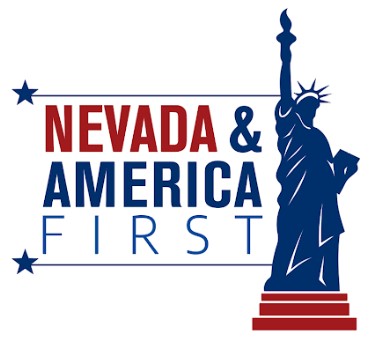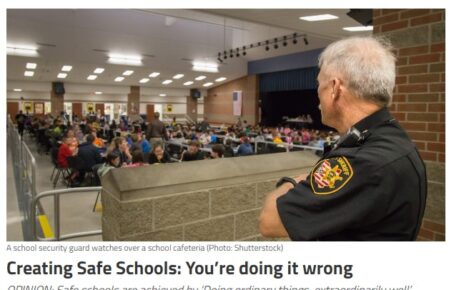A NEVADA LIBERTY DOCUMENTARY. PART 1 of 5:
Nevada’s Unconstitutional and Discriminatory Elections
By DesertRat
July 26, 2022
Voting in-person is a show of national pride. The county provides “I Voted!” stickers so patriots can boast that they’ve cast their ballot. The duty to vote is known as a “right of suffrage”. Women demanding a vote in 1869 were called, ‘suffragettes”. Nevadans have a right of suffrage/a right to vote:
The Constitution of the State of Nevada
Article 2 – Right of Suffrage
Sec. 1 – Right to Vote
It is one’s duty to vote and to vote in-person if one can, but recently enacted laws dilute those principals. Sadly, voters who vote by mail, fax, or the Internet do not get a sticker.
Everyone also has a duty to limit fraud in elections and to accurately report ‘the true vote cast’, however, Nevada’s recently adopted system of automatic mail ballots, ballot harvesters and assistants, early voting, late counting, vote centers, and more strip away at the integrity of elections. Much of it is un-Constitutional and/or discriminatory. Complicating matters, various laws of Nevada enable fraud and/or malfeasance, limit transparency and accountability, or are toothless when violated. And numerous laws were violated in the 2022 primary, some of which are cited herein. (The full list is lengthy!)
This is the first in a series of articles exposing significant issues with Nevada’s elections in hopes they can be fixed and voter trust and robust participation restored.
Automatic Mail Ballots Debunked
The Times, Places and Manner of holding Elections for Senators and Representatives, shall be prescribed in each State by the Legislature thereof; but the Congress may at any time by Law make or alter such Regulations, except as to the Places of chusing Senators. Constitution of the United States, Art. IV § 4, Clause 1
Automatic mail ballots throw control of the “Places of chusing senators” out the window by their decentralized nature. Now, voters are no longer able to cast a paper ballot inside a polling location as has been done since Nevada obtained statehood.
The Nevada Constitution memorializes the power of counties to regulate local and state elections and to designate, or choose, the Places of voting at Article 4 § 20:
Certain local and special laws prohibited. The legislature shall not pass local or special laws in any of the following enumerated cases—that is to say:
Regulating the election of county and township officers;
Providing for opening and conducting elections of state, county, or township officers, and designating the places of voting;
And at Term Limits Amendment Section I: Severability § 4:
Elections: Places, judges, inspectors and procedure. The elections provided in this Ordinance shall be holden at such places as shall be designated by the Boards of Commissioners of the several counties in said Territory. The Judges, and inspectors of said elections, shall be appointed by said Commissioners, and the said elections shall be conducted in conformity with the existing laws of said Territory in relation to holding the General election.
The choosing of Places is also by default the choosing of times and manner—these terms go hand-in-hand and are covered under the U.S. Constitution Article IV § 4 Clause 1. Because mail ballots are forced upon counties and their citizens by Nevada, they are in violation of the power of counties to designate and regulate the Places of elections by themselves
The Nevada Constitution (September 7, 1864) does not contain the words ‘mail’ or ‘absent/absentee’.
In 1775, the federal government appointed the first Postmaster General, named Benjamin Franklin. Between April 1960 and October 1961, the Pony Express operated throughout Nevada – all before Nevadans ratified the state’s Constitution. (Pony Express in Nevada: https://nationalponyexpress.org/nevada-stations/) If Nevadans wanted people to vote by mail, they had a chance to add it into the Constitution and chose not to. Ergo, remote voting by mail is unconstitutional.
Nevada’s AB321 (eff. 1/1/2022, regulatory changes eff. 1/28/2022) radically changed the equation by making the process of absent voting by mail opt-out instead of opt-in as it traditionally has been done. Opt-out, along with every precinct is now a mail precinct, treats every voter like a permanent absentee—too sick or injured to go to the polls and not going to get better. One’s duty to appear in-person and cast their ballot is now one’s duty to do the least possible—at the expense of ballot security and ultimately, the true vote cast.
NRS 293.387 Canvass of returns; abstract of votes.
2. In making its canvass, the board shall:
(b) Take account of the changes resulting from the discovery, so that the result declared represents the true vote cast.
Mail ballot per AB321 makes permanent the emergency provisions that were instituted as a response to Covid and that were never approved by a vote of The People as is constitutionally required. (Case history: McLinko et al vs. Pennsylvania et al, Commonwealth Court of PA, No. 244 M.D. 2021: https://www.pacourts.us/assets/opinions/Commonwealth/out/244MD21_1-28-22.pdf?cb=1)
In-Person Polling
Precincts are the Foundation of Local Governance
The hypocrisy of our laws is evidenced by: a) no paper ballot to be cast inside a polling location when a hard copy sample ballot must be available and/or printed upon request, and b) providing drop boxes for mail ballot when the mailbox is outside the voter’s front door, and c) providing a drop box inside a polling location when the voting machine is right there next to it.
Having a drop box at a vote center and not allowing the voter to cast their paper ballot inside is illogical at best.
To make matters worse, for those who prefer to vote inside a polling location, their paper ballot is wasted as if it were a penalty; and when they didn’t even ask for a mail ballot in the first place. (Fact: Over 1.2 million wasted mail ballots in 2022 primary statewide) Furthermore, voters with a mail ballot who choose to vote inside must sign an affidavit testifying they didn’t vote prior, placing a restriction on their ability to vote with penalty of perjury along with it. If their identity was stolen without their knowledge, they could be in violation of the law and not know it.
Nevada Constitution gives counties rights to choose the Places of conducting elections, which in effect also controls the times and manner, at Article 4 § 20 and Term Limits Amendment Section I § 4.
Vote centers and drop boxes abolish precinct polling, numbers of centers/boxes per voting population are minimums. (NRS293.2735, 293.3072, 293.3561, 293.437)
Out-of-precinct polling, also known as centralized polling, creates more travel time and expense for a voter to get to a voting center and is discriminatory by nature. Out-of-precinct polling on Election Day ruled against by U.S. Supreme in 2021 (Brnovich v. DNC, No.19-1257 and Arizona Republican Party v. DNC, No. 19-1258). https://www.cnbc.com/2021/07/01/supreme-court-upholds-arizona-voting-rules-democrats-called-discriminatory.html
Counties may operate as many polling locations as they deem fit (NRS293.2955(4), 293.3072, 293.3561 to 293.3572, 293.437, 293.8831 to 293.8837, 293.8861, and AB321, and R093-21A, R097-21A), and must allow senior communities of 100+ voters their individual polling place (NRS293.2735).
Delineation of a voter’s precinct on a ballot is the law. (NRS293.3075)
Delineation of results by precinct is the law. (NRS293.213, 293.269913, 293.269935, 293.269935, 293.3606, 293.370, 293.8887, 293B.130, and NAC293.311, 293.331, 293.335)
What is now described as centralized voting, wherein one may vote at a polling location regardless of precinct, is discriminatory by nature and in violation of Nevada law and U.S. Supreme Court ruling.
Remote Voting
Remote voting in a non-presidential race without a medical, military, or government reason for doing so is not enshrined in either the U.S. Constitution nor the Nevada Constitution. Rather, opt-out remote voting is unconstitutional pursuant to U.S. Constitution at Article 1 § 4 Clause 1 and Nevada Constitution at Article 4 § 20 and Term Limits Amendment Section I § 4.
In an effort to encourage voters to vote remotely, where voter assistants, ballot harvesters, and others along the chain-of-custody can and do exert their political biases, Nevada provides a minimum of in-person-inside polling locations, while extending by days the period for return of a mail ballot after the closing of polls that further aids mail ballot fraud.
Most European nations ban mail ballots because it is the least secure method of voting, according to John Lott of the Crime Prevention Research Center in his April 2021 report that was widely published and respected by the news media. (https://papers.ssrn.com/sol3/papers.cfm?abstract_id=3666259 and https://www.washingtonexaminer.com/washington-secrets/developed-countries-ban-mail-in-voting-us-would-be-laughing-stock-report)
Standard Mail – Absentee ballot is now defined as mail ballot and every precinct is now a mail ballot precinct. A ballot will be sent unless a voter opts-out or removes themselves from the voter rolls. The forcing of a ballot onto a voter is exactly that, and they are now burdened with the handling of a highly sensitive document whether they like it or not. The voter has the option to vote in-person and waste their paper ballot, sign an affidavit, and then vote electronically on a machine. Electioneering laws and voter protections are unenforceable. Chain-of-custody is broken because postal workers are not identified and ballot tracking is only portal-to-portal, and with no way to track between a voter’s mailbox and delivery to county. In the 2020 general election in Washoe County, 62,274 mail ballots were not returned and were labeled “status unknown” – the chain-of-custody gone.
Nevada allows lone unofficial strangers to offer assistance and/or delivery of a ballot with little to no voter protections. Similarly, ballot harvesting may also involve lone strangers. In both cases, assistant or harvester, some individuals may bribe or coerce a voter for their services and are suspected of being paid by outside influences. Party affiliation is visible on the envelope and on the ballot, making it easy for such individuals to exert their political bias in the casting or delivery of someone else’s ballot with few impediments. The laws of assistance and harvesting foment discrimination and exploitation of the vulnerable among us: elderly, sick, poor, indigent, illiterate, and non-English/Spanish/Tagalog-speaking. See Helpers below.
Mail for the disabled – the blind and visually impaired may opt-in to receive a braille or large-type ballot. Historically, before the Covid pandemic and the subsequent passage of AB321, laws such as NRS293.127 and others provided a means for blind, sick, injured, and elderly to vote remotely by mail, known as an absentee voter. A voter had to request such special treatment in order to sustain everyone’s duty to appear at the polls if they could. The Americans with Disabilities Act covers these voters (https://www.ada.gov/ada_intro.htm):
“…the ADA is an “equal opportunity” law for people with disabilities. To be protected by the ADA, one must have a disability, which is defined by the ADA as a physical or mental impairment that substantially limits one or more major life activities…”
The Voting Accessibility for the Elderly and Handicapped Act, 52 U.S.C. § 20101 et seq covers these voters as well:
“…to promote the fundamental right to vote by improving access for handicapped and elderly individuals to registration facilities and polling places for Federal elections.”
AB321 resets absentee to one of lowest common denominator—intending everyone be treated equally to the weakest and sickest among us. In the guise of nobility, AB321 strips voters of their presumed health. For those that truly benefit from absentee voting, the system has not changed much.
Helpers with hidden interests
Voter Assistance in residence – a statutory program to aid elderly and disabled voters and certain foreign language-speaking voters (15voterasstbrochure.pdf) that has been expanded pursuant to AB321 to include lone unofficial assistants. The new law allows for two types of voter assistance: 1) The county-sponsored two-person field team, and 2) Anyone (singular) who the voter designates.
The new law opens the door fully to bribery and coercion because there’s no way to ensure a voter didn’t take any money or was not abused or threatened. No ID requirement for lone unofficial voter assistant, who must provide their name, address, and signature. No system to ensure that a lone assistant is who they pretend to be and is not a predator. No way to ensure that a lone assistant was even engaged because a voter could easily hand off their ballot and envelope without checking the outside box on the envelope that identifies the aid of an assistant. If the assistant has to read the instructions and fails to do so accurately, or the voter fails to fully comprehend, there is no oversight and no voter protection. Oddly, the 2022 primary ballot instructions did not mention voter assistants. (NRS293.329, 293.352, 293.8857)
Ballot Harvesting – Identity of deliverer is not required unless voter assistance provided, no chain-of-custody. No law against ballot harvesters being paid by private groups, and to operate in some areas and not others. No compulsion for a ballot harvester to deliver one’s marked ballot in a speedy manner, but they are compelled to deliver it before the day of election or mailed on day of election. Mail ballots were sent out May 25th, giving fraudsters almost three weeks to steal mail ballots, print fake ballots, and return them. In some instances, a signature may be forged. The practice of ballot harvesting was ruled discriminatory by the U.S. Supreme Court in 2021 (Brnovich v. DNC, No. 19-1257 and Arizona Republican Party v. DNC, No. 19-1258). https://www.cnbc.com/2021/07/01/supreme-court-upholds-arizona-voting-rules-democrats-called-discriminatory.html (NRS293.269923, 293.330, 293.353, 293.8864)
Early Counting is Illegal
2 U.S. Code § 7 memorializes the day of election, not three weeks of early voting.
NRS293.365: “no counting board in any precinct, district or polling place in which paper ballots are used may commence to count the votes until all ballots used or unused are accounted for.”
The 2022 primary was held on June 14. Acting ROV, Jaime Rodriguez has admitted she broke the law in taped interview from June 12, 2022 @02:18 in the video: “We started tallying Friday, Saturday, we started Friday or Saturday…”
Extended Counting is Illegal, Conflicts with Other Law
2 U.S. Code § 7 memorializes the day of election, not 7-days counting after polls close as mail ballots continue to arrive and rejected ballot signatures and missing info is cured as is the law in Nevada.
Mail ballots may also violate the Equal Protection Clause for it gives a special privilege—an extension of time early voters and election day voters don’t share—that could affect the outcome of one or more races. Mail ballots not received by election day—as opposed to postmarked on election day—violate 2 U.S. Code § 7 and conflict with NRS293.365 and NAC293.317. A mail ballot that does not arrive by election day must be rejected.
- NRS293.333(2) provides for counting of mail ballots 7-days after polls close, a violation of 2 U.S. Code § 7.
- Late arrivals counted separately and additionally from early and election day counting arguably violates the Equal Protection Clause of the U.S. Constitution at Amendment XIV § 1 because it confers a special privilege to such voters—an extension of time that early voters and election day voters don’t share. (see O’Brien v Skinner, 414 US 524 (1974))
- Late arrivals also conflict with NAC293.317(1): “To be counted, an absent ballot must be received by the office of the county clerk by 7 p.m. on the day of the election.”
No Transparency
“Americans’ right to free and fair elections is inalienable, but that right is infringed by lack of transparency, and by whatever lies behind that opaque curtain.” Mesa County, CO, Forensic Report 3, Introduction
Transparency is not supported by statute nor the Nevada Constitution and is but an illusion in part because the founders of our state never envisioned computers and the Internet, which sit at the root of the problem. Electronic voting systems are not available for inspection by the public. The vendor agreements with counties have unique private-public shared responsibilities in regards to non-disclosure. State laws add icing to the lack of disclosure cake that has been baked into our elections.
Without transparency there can be no accountability. The posing of grievances by The People is made moot by Nevada’s laws. Thus, there are few safeguards to protect voters and the true vote cast.
In an effort to take back control, Nye and Esmeralda County Commissions have taken a bold and progressive step by adopting paper-only ballots, counted by humans.
Closing
AB321 is abhorrent to the Nevada Constitution. Abhorrent laws are automatically null and void. Unfortunately, this has become the state of affairs of our elections going into November 2022.
Mail ballots are problematic in terms of policing. Assistants and harvesters may be paid by private organizations to solicit certain neighborhoods and individuals and not others, and can assert their biases with impunity. Mail ballots are not secure documents and can be counterfeited. Chain-of-custody of mail ballots has a huge hole between delivery to voter and return to county for bad actors to impact the outcome of one or more races. Mail ballot envelopes are in violation of ballot secrecy laws. And to top it off, automatic mail ballots represent incredible waste created from unreturned and destroyed ballots. Moreover, the handling of envelopes, affidavits and declarations, and signature verification encumbers the process and adds to costs by virtue of more paperwork alone. That such processes are more secure or better than any alternative is a fallacy perpetrated by public and private interests – not based on the voter’s interests.
Trust, accuracy, and transparency in elections are the foundation of our Constitutional Republic for without such things representative government ceases to exist.
The solution is to mitigate reliance on machines to cast, count, and/or report votes, trust in humans with proper checks and balances when violations occur, enhance voter and ballot authenticity and reporting accuracy, narrow the window in which a ballot can be accepted and counted, and allow truly meaningful observation and transparency throughout the election process.
The next article in the series will explore Top-Down, Bottoms-Up election management and voter registrations systems.
God Bless America!



